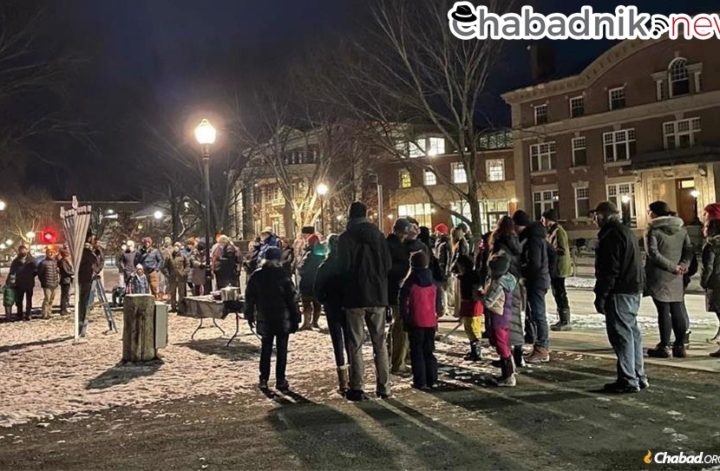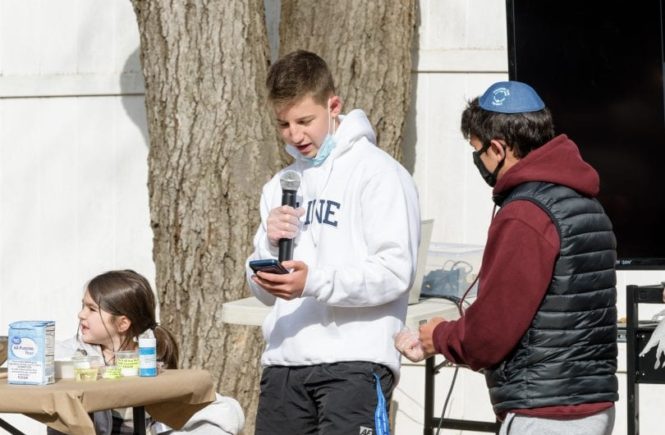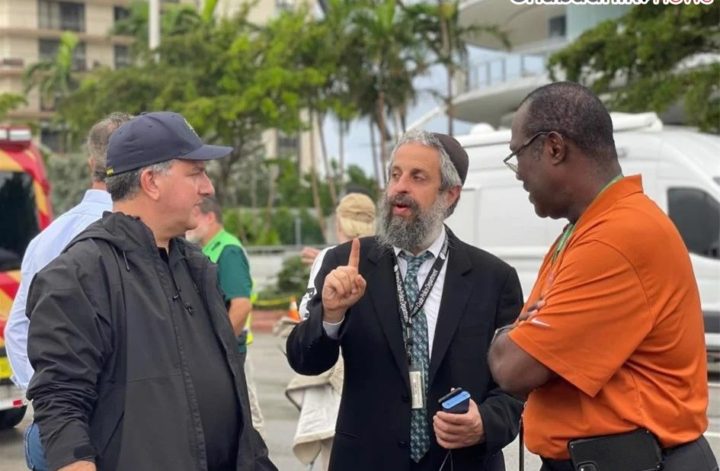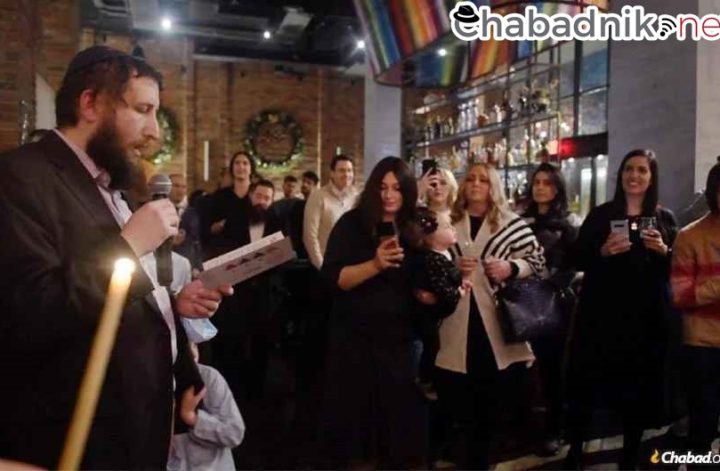Celebration caps a year of unprecedented Jewish growth at the Ivy League college
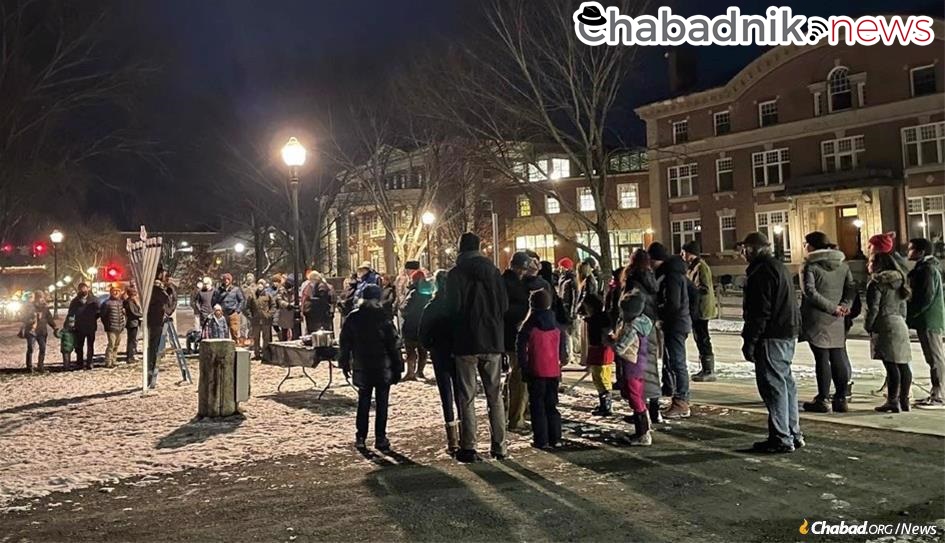
“They bring the darkness, we bring the light.” That became the motto of the micro-community of Jewish students at Chabad at Dartmouth after last year’s antisemitic attack during Chanukah involving the vandalization of the public menorah on campus.
In a senseless act of hatred, the menorah was shot at with a pellet gun, shattering its nine bulbs and damaging the branches. This year, Chabad at Dartmouth had big plans for an even larger event than in years past. The newly rebuilt menorah was proudly displayed on the Dartmouth Green, serving as a symbol of Jewish pride and perseverance in the face of adversity.
Even with many away from campus due to the Thanksgiving holiday weekend, more than 100 turned out for the event. It was the largest lighting they’ve ever had, Rabbi Moshe Gray, co-director of Chabad at Dartmouth with his wife, Chani, told Chabad.org.
A member of the university’s facilities management generously offered to fix the menorah in time for this year’s event, which took place last night, on the first night of Chanukah, said Gray.
“There were speeches, there was singing and dancing—we celebrated Jewish pride ,” he said. “The Rebbe [Rabbi Menachem M. Schneerson, of righteous memory] taught us to have vision, to look at the world with a broad view. We’re here to be an example to the world, ‘a light unto the nations.’ If we cowered in the face of adversity every time, we wouldn’t have a Jewish people.”
Heidi Fishman, a member of the Jewish community, is the daughter of a Holocaust survivor and a staunch advocate for equality across the human spectrum, said she was very supportive of Chabad’s positive, proactive response to antisemitism. Through her work at the Vermont Holocaust Memorial, which was founded by second-generation Holocaust survivors, she has dedicated her life to sharing her mother’s story of survival.
“I often meet people who have never met a Jew before,” she says. Aside from what she says are “the few sentences” in history textbooks that cover that terrible era of Jewish history, many people have little to no knowledge about the Holocaust. Not surprisingly, she finds that children are most receptive to the stories she shares.
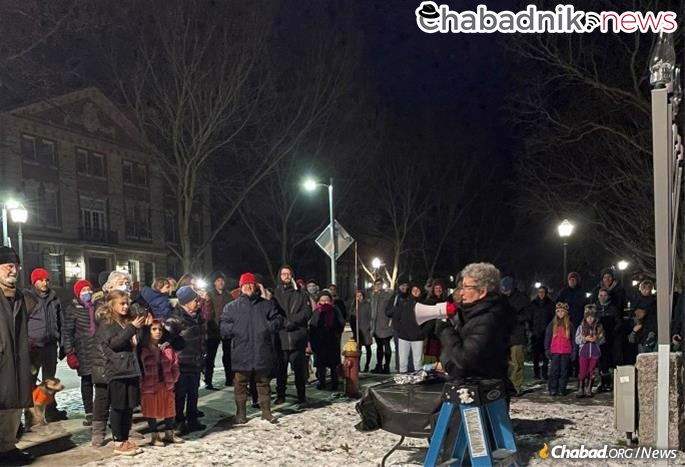
“They get it,” adds Fishman. “They don’t need to hear about Auschwitz. When they hear about a little girl who was kicked out of school and forced to wear a Jewish star, they understand.” In today’s confusing world, many children are no strangers to concepts of hate, prejudice and racial bias.
“I was horrified when I heard what had happened,” she says. “I don’t put up with this sort of thing.”
She says that in a small-town Jewish community like that of Dartmouth, there is power in numbers. There is a profound importance for unity in the face of hate, she insists. “We have to stand together. We need allies.”
Not ironically, the message of the menorah is one of Jewish pride and Jewish identity, shares Fishman. “The menorah says, ‘We are going to be Jewish no matter what. You can’t make us Greek; we’re not going to subserve to you. We have pride, and we’re going to stick with it.’ ”
She says that she was recently invited to speak to a group of teenagers, recounting that “they had such great questions. They asked what the world would have been like if the Holocaust wouldn’t have happened. They asked if I were proud to be Jewish. I said I was.”
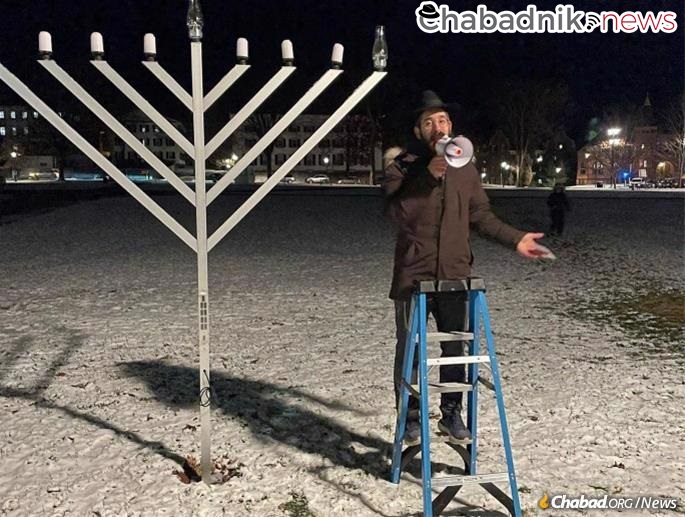
Record-breaking Jewish Engagement at Dartmouth
Max Pivo, a senior at Dartmouth who holds the position of senior class representative on the Jewish Student Board at Chabad of Dartmouth, says that it’s been wonderful to finally be back on campus and the Chabad Jewish Student Center, after having been home during much of the coronavirus pandemic. Since returning, they have seen exponential growth in religious activities on campus in what Rabbi Gray calls “record breaking numbers.”
“We’ve had to purchase new machzors for the High Holidays and add more tables to Shabbat dinners on Friday night because people are coming in droves,” says Pivo.
Members of the student board meet weekly to discuss how to best interact with other student advocacy groups on campus. “We’re trying to step up and do what we can in the face of what’s needed of us and remain flexible,” he says. “It’s a very evolving thing.”
Chanukah represents a teaching moment, for students and observers alike. “The menorah is about bringing added light into the world,” he says. Although he is unable to attend the menorah- lighting event in person, he says he is looking forward to joining via Zoom.
As far as counteracting hate on campus, he feels that keeping the lines of communication open is key: “Opting to not have the hard conversations is not healthy.”

